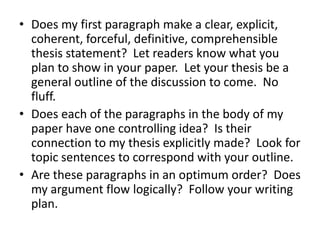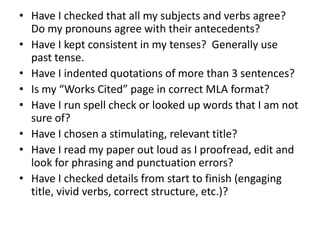This document provides a checklist for writing a research paper. It includes questions to ensure the paper has a clear thesis in the introduction, engaging topic sentences in each paragraph that relate back to the thesis, logical flow and organization of ideas, use of transitions between paragraphs, varied sentence structure and word choice, minimal weak language, correct formatting of quotes and citations, proper grammar and spelling, and an engaging title. The checklist aims to help writers structure their paper in a clear, coherent, and compelling manner.





